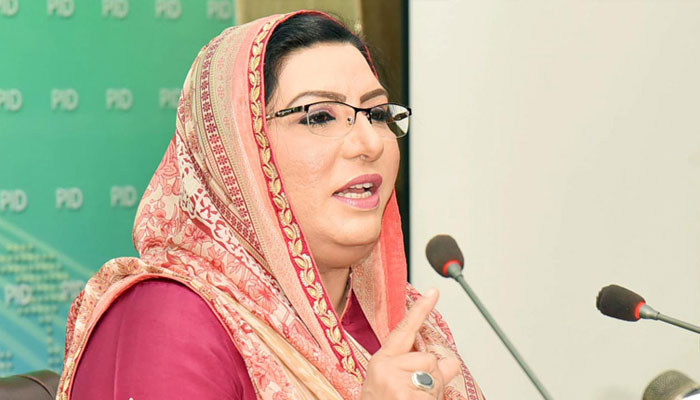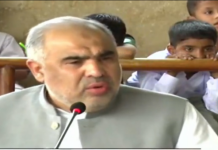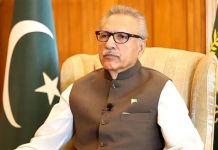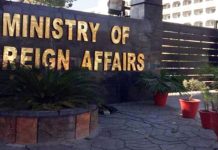SEHWAN: A suicide bomber attacked Lal Shahbaz Qalandar shrine in Sehwan Sharif on Thursday, killing at least 72 people and wounding more than 150 others in the deadliest of a wave of bombings across the nation this week.
An Edhi spokesman said the attacker appeared to have targeted the women’s wing of the shrine, and around 30 children accompanying their mothers were dead.
Islamic State, the Middle East-based militant group claimed responsibility for the attack, the group’s affiliated news agency AMAQ reported.
Senior police officer Shabbir Sethar told a foreign news agency from a local hospital that the death toll was likely to rise. “At least 72 are dead and over 150 have been injured,” Sethar said by telephone.
A police source said a suicide bomber had entered the shrine and blew himself up among the devotees. The shrine had been crowded on a Thursday, considered a sacred day for prayers.
Sindh Police Inspector General AD Khawaja told AFP that many wounded people were in critical condition and they would be shifted to Karachi as soon as navy helicopters and C-130 plane reached the nearest airport.
Television footage from the famous Lal Shahbaz Qalandar shrine in the town of Sehwan Sharif showed army and paramilitary medical teams reaching the site and injured people being taken to nearby hospitals in ambulances and a military helicopter.
“We were there for the love of our saint, for the worship of Allah,” a wailing woman told a news channel outside the shrine. “Who would hurt us when we were there for devotion?”
The attack comes as the Tehrik-i-Taliban Pakistan (TTP) and rival militant groups carry out their threats of a new offensive.
The violence has shattered a period of improving security, underscoring how militants still undermine stability in the country. The high death toll at the shrine makes it one of the worst attacks in Pakistan in recent years.
In August last year, at least 74 people, mostly lawyers, were killed in a suicide bombing of a hospital in Quetta.
In November, an explosion claimed by Islamic State ripped through a shrine in southwestern Pakistan, killing at least 52 people and wounding scores.
At a crossroads of historic trade routes, religions and cultures, the southern province of Sindh where the shrine is located has always been a poor but religiously tolerant region, helping to shield it from much of the violence more common in other parts of Pakistan.
Shortly after the blast, the army announced it was closing the border with Afghanistan with immediate effect for security reasons.
Different militant groups, often trying to outdo each other, say they are responsible for the bombings.
In the case of the Quetta hospital blast, both Jamaat-ur-Ahrar and Islamic State claimed responsibility. Jamaat also said it was responsible for a bombing in Lahore earlier this week that killed 14 people.
Rescue officials said dozens of wounded people were being ferried in private cars to hospitals. The nearest major hospital was nearly an hour’s drive away in Dadu district. The army intensified a long-awaited operation in the semi-autonomous tribal areas, where militants had previously operated with impunity, and the government launched a vaunted National Action Plan against extremism.
Emboldened people are once again attending public gatherings and the growing confidence is palpable after more than a decade of militant attacks. But critics have repeatedly warned that the crackdown does not address the root causes of extremism, and groups like the TTP and the Islamic State can still carry out assaults.














